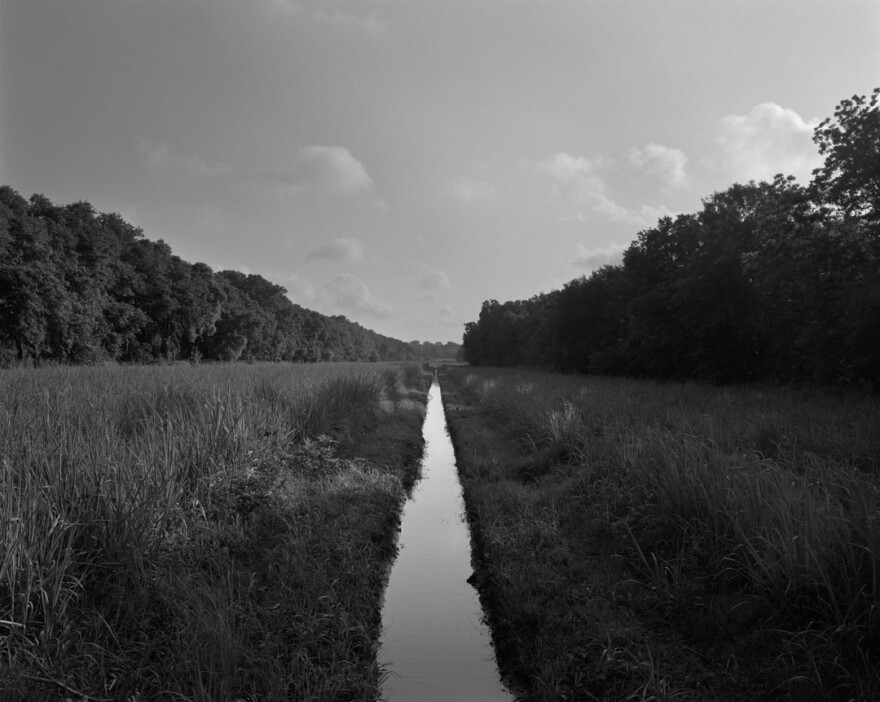Elegy, an exhibition of works by photographer Dawoud Bey, is on display at the Virginia Museum of Fine Arts until Feb. 25.
Bey built a reputation for portraits that center Black representation and history, from street portraits in Harlem, New York, to mirror images of young and old residents in Birmingham, Alabama.
Elegy itself includes three photographic series and two films that turn the focus away from individuals — instead, Bey turned his lens to landscapes.
In "Stony the Road" and 350,000, a new photo series and film commissioned for the exhibition, Bey examined the Richmond Slave Trail. He sought to evoke a particular perspective on the trees, the James River and the narrow dirt path.
“As if through the eyes of the 350,000 enslaved Africans who moved through that unknown space on their first encounter with America,” Bey said in a discussion with VMFA curator Valerie Cassell Oliver.
Bey’s work challenges viewers to see how Black history has shaped America, and to imagine that history even when it is invisible.

Elegy also includes the series "Night Coming Tenderly," "Black" and "In This Here Place," which capture sites at the end of the Underground Railroad and on a Louisiana plantation, respectively.
Bey said that his work is in an “ongoing conversation with Black expressive culture,” which has inspired the titles of his photo series. "Stony the Road" references "Lift Every Voice and Sing," "Night Coming Tenderly" and "Black" both reference Langston Hughes’ "Dream Variations" and "In This Here Place" references Toni Morrison’s Beloved.
In her discussion with Bey, Cassell Oliver said his work on "Night Coming Tenderly," "Black" and its focus on the self-emancipation of Black Americans sparked the idea that became "Elegy."
“I had just moved to Richmond and myself been introduced to the Historic Slave Trail. So I thought immediately, this was our opportunity to work together because we had this bookend — the beginning of bondage and, of course, the rendering, the self-determination to flee bondage,” Cassell Oliver said.
"In This Here Place’s" plantation landscapes fit squarely into that chronological concept.
“I began to, after 'Night Coming Tenderly,' 'Black,' want to begin to trace my way deeper into this history,” Bey said.
Elegy is open at the VMFA through Feb. 25.
Tickets to view Elegy can be purchased at the museum’s website.



